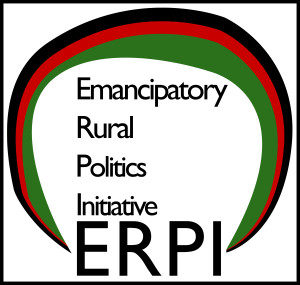 Why is this important? Deepening inequalities, failed livelihoods, mass (under)employment, climate chaos and racist anti-immigrant attacks characterise many settings across the world. Forms of ‘progressive neoliberalism’ — peddled inaccurately as social democracy — have failed to stem disillusionment, disenfranchisement and marginalisation. The rise of populist, nationalist movements — with racist, misogynist and isolationist characteristics — has been one very visible response. Such exclusionary politics are unravelling protections for women, racial minorities, disabled people, LGBTQ communities and many others.
Why is this important? Deepening inequalities, failed livelihoods, mass (under)employment, climate chaos and racist anti-immigrant attacks characterise many settings across the world. Forms of ‘progressive neoliberalism’ — peddled inaccurately as social democracy — have failed to stem disillusionment, disenfranchisement and marginalisation. The rise of populist, nationalist movements — with racist, misogynist and isolationist characteristics — has been one very visible response. Such exclusionary politics are unravelling protections for women, racial minorities, disabled people, LGBTQ communities and many others.
This type of populism depicts politics as a struggle between ‘the people’ and some combination of malevolent elites and racialized, unfairly advantaged ‘Others’. Yet the reactions to authoritarian populism are incredibly diverse, across and indeed within countries. In this Initiative, we are interested in changes ongoing in and in relation to rural areas that both give rise to a particular form of politics, but also offer alternatives.
Whether in the US, across Europe, Turkey, India, the Philippines, Brazil or South Africa and Zimbabwe – and many other countries besides – various forms of reactionary nationalism have entrenched a narrow, sometimes violent, conflictual, exclusionary politics. This may be in the name of ‘taking back control’ in favour of ‘the people’, or putting one ideology and position ‘first’, while excluding others, generating tensions across society. All are responses to crises in contemporary capitalism, yet they are rooted in specific histories, institutional and social structures and political dynamics. Responses may be contradictory: for example shoring up a certain style of political power, while selectively offering progressive policies, whether free education, land reform or investment in rural communities.
The ERPI is focused on the social and political processes across rural spaces that are giving rise to such political reactions today. We seek to understand – but not judge – the characteristics of the social base that give rise to such political dynamics. We also aim to explore how alternatives are being actively generated to regressive, authoritarian politics. We seek to create the space for a debate about alternatives, documenting, analysing and theorising these in order to begin to outline new emancipatory politics that challenge narrow, exclusionary, violent and populist visions, analysing, sharing, supporting, deepening and scaling up alternatives.
Initially, we are proposing three core themes and a range of questions for the Initiative: (i) The current conjuncture: rural roots and consequences (ii) Resisting, organising and mobilising for an emancipatory rural politics (iii) Alternatives: understanding, supporting, creating, deepening and scaling. More detail on emerging thinking can also be found here.
With this call we seek to engage scholars, activists and practitioners from across the world who are both concerned about the current conjuncture, but also hopeful about alternatives. We will initiate a Working Paper series, supported by a limited number of small grants, to allow for the writing up of original research. In parallel we are inviting other, shorter contributions in a variety of media, helping to map out responses and alternatives. In 2018, we will host a major international conference on this theme, and we will be encouraging publication of a series of papers in the Journal of Peasant Studies, as well as other popular and media outlets, as a focus for an intense, informed and radical engagement around this theme. We hope others in social movements, political formations, policy institutions, and elsewhere will participate, developing new visions that respond to the current moment.
Collectively, we hope that we can make a small contribution in sharpening our analysis of the global situation, and by doing so, help inspire more people to join in peoples’ movements, community conversations and local innovations and experiments, wherever these may be. So readers of this blog, researching in rural areas and interested in these themes, please join the Initiative! You can sign up to mailing lists by getting in touch at emancipatoryruralpolitics@gmail.com, and follow on Facebook and Twitter.
This post was written by Ian Scoones and appeared on Zimbabweland
Post published in: Agriculture

